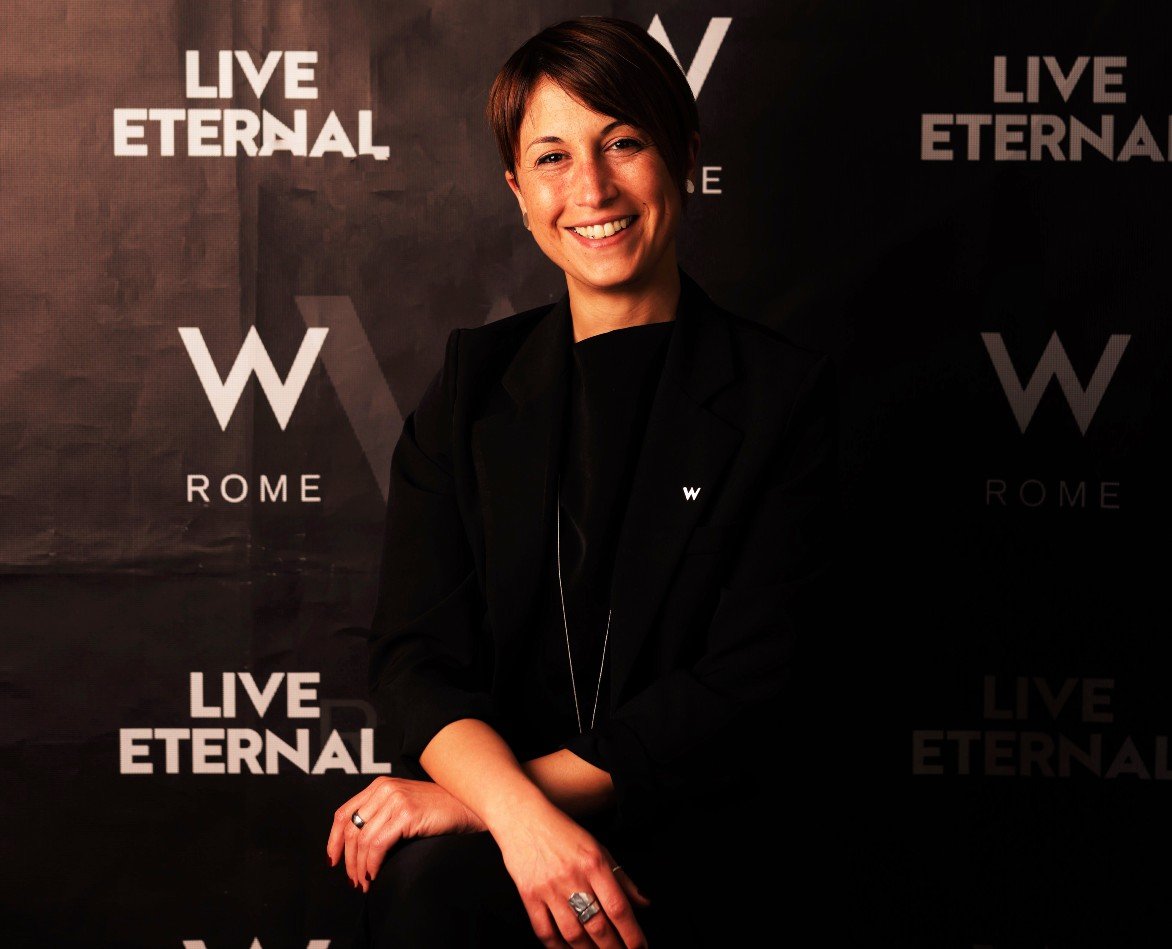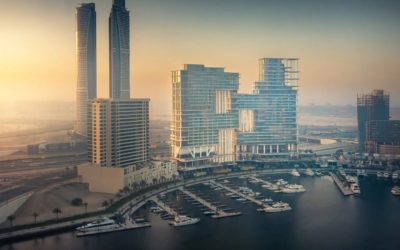Do you wonder what it's like to work at a pre-opening hotel and if it's the right move for you? Chiara Fenestrelli, Director of Human Resources at W Milan, thinks that every luxury hospitality professional should experience a hotel opening at least once in their career.
After starting out in recruitment as an external consultant, Chiara joined Marriott in 2018 as HR Coordinator for various properties in the group, and has since overseen several pre-openings. In this exclusive interview, she covers what it's like to work in new hotel openings, including the benefits and the challenges, and tells us why she thinks that every professional in the hospitality industry should experience it.
Chiara, what are the key steps and priorities when developing a hiring plan for a pre-opening property like W Milan?
Usually, we go backwards from the opening date to define a hiring plan for all the necessary roles, also taking into account the budget at our disposal.
The first people we need to hire are all the so-called operation support roles. This means sales, marketing, human resources, finance, revenue, and IT. These roles are critical to develop the entire operational structure. When talking specifically about W, I would say that some of the most important areas are marketing and sales, because we rely so much on communicating our passions and values. Also, F&B is very important to us, and is another main interest of the brand.
Next, we need to hire all the managers who are going to be responsible for the various departments. Of course, first and foremost there is the GM who, in some cases, comes in even years before the hotel opens. Then, it is time to recruit for all the second-level positions, the right hands to our department heads.
About three to four months before the opening, we fill all the remaining positions inside the operation support departments. Two months before the opening, it’s when we hire all the people who are going to coordinate the teams.
As for the entry-level roles, their hiring dates may vary: the people who need to be trained on important systems, like Opera, need to join us in time to complete the training, while the more hands-on roles join us about two to three weeks before the opening.
In your opinion, what are the main advantages of working at a pre-opening hotel versus an already established hotel?
I would definitely say that the main benefit is the learning opportunity, the chance to really see from scratch how a hotel is created, how everything is set up: systems, concepts, and standards.
The second one is the spirit you create with the whole group, the very high level of engagement. You have the opportunity to work with departments that, once the hotel is open, interactions are maybe a little more limited. Instead, in the pre-opening phase everyone is working together, and everyone is interconnected, we are all working towards the same goal.
The other advantage is the satisfaction you feel on opening day. The fact that you know which supplier made the doors, because you saw them being delivered. How proud you feel when you finally see all the uniforms, clean and ready to go. The excitement of seeing something you've been working on for months come to life, and this feeling is addictive.
On the other hand, what are the challenges?
I have to say that, as exciting as starting from scratch can be, it is also a significant amount of work, with many sudden changes that require high doses of adaptability and flexibility. Often, you have a perfectly well-defined plan, and all it takes is just the slightest thing to change and you have to readjust everything. Even the most perfect plan on paper often has to be changed completely. So, I would say that the biggest challenges are the amount of work and the frequent changes of direction.
Also, the levels of stress and pressure are a bit more intense. I say this very often when I interview candidates: it's not for everyone, it's not a piece of cake. It’s a challenge and it has to be taken as a challenge.
We often see profiles that do one opening after another, and you are an example of that. Is there a kind of adrenaline that drives you to continue on this path?
Yes, I think adrenaline is the right word to explain it. The early creation phase gives you a motivation and an energy that afterwards, in the first two to three years of operation, are not the same anymore. I wouldn’t say that they fade away, but they definitely transform. By that I don't mean that when the hotel is already open you get bored, but there is definitely a different kind of atmosphere.
Pre-openings can be uniquely challenging and some people who experience it may not want to do it again. But, for the right profile, it comes with skills, flexibility, and an adaptability that is addicting and creates a desire to do it again. The thing is that you really learn five times faster than in an established hotel, and not just in your area, because you basically see all the departments come to life.
Let’s talk about this last point. When you have to create a team for a new opening, how much does it matter to have previous experience in a pre-opening, or a background in hospitality?
For me, it's a huge plus when I know that someone already has that kind of experience and wants to do it again. That means that, despite all the challenges they faced, they liked that kind of work, and this to me is very important.
In an opening you do things that are often outside your scope of work. For example, it's not every day that you see finance, sales, marketing, or revenue picking up boxes and taking them into the warehouse, but in this setting they do it. Someone who has worked on an opening before has developed that kind of adaptability and has the experience of having set something up from scratch, having implemented policies, procedures. All of that to me is a huge advantage, and that's also why people who have already done it always come back.
As far as having a background in hospitality, for me motivation and attitude matter way more, because the technical part can be learned and we have many tools to teach, but what we cannot teach is attitude, motivation. Moreover, sometimes a lack of experience could also be an advantage, because you don't have the past wounds, that person can't tell me “We used to do it this way."
Let's talk about the required skills. What are the aspects you prefer in a candidate?
I really appreciate someone who knows what it's like to work with lots of systems, high levels of management and policies with high standards. We want people who are used to working in structured and sometimes complicated settings, even in industries other than hospitality.
For some positions, having a field-related education helps because they give you a certain mindset, but I've learned that you can also have other degrees (or no degree at all) and be incredibly comfortable in a structured environment like ours.
What are the questions that you always ask in a job interview?
I always start by asking what motivates the candidate and how they perceive the position. This helps me understand what they are looking for, and it also gives me the chance to explain what expectations we have for that specific role.
Another key pillar for me is the brand knowledge, because Marriott is synonymous with non-traditional luxury, and when you need to maintain very high standards but with a very informal delivery, the margin for error is very narrow.
What is, roughly, the percentage of employees who leave and those who choose to stay a year after the opening? There is a high turnover? And if so, why?
They say it’s very high. In my experience, for example for the opening of W Rome, the level of post-opening engagement was incredible, it reached ten points higher than the European average. However, we saw the turnover after a year and a half, also due to new openings that were happening at that time in Rome, which caused a small migration to those properties.
Why would you recommend every hospitality professional experience a new opening at least once in their career?
I seriously think this is the best experience you can have to understand the hospitality industry from the inside. In pre-opening, you see things that you could never see in other settings. For those who have a passion for hospitality, it's a unique experience that empowers you, teaches you so much and allows you to grow. The skills you gain help you to move up the ladder much faster than when you work in an already established property, where sometimes it’s not that easy to get the big picture.
When you work at a pre-opening hotel, you have a kind of exposure that goes beyond the single property, that goes all the way up to the company’s area managers and that allows you to see what happens at those higher levels.
For example, in Marriott you have the opportunity to work with their teams especially dedicated to new openings. When you work in a hotel that is already operating, interactions with these people are minimal, if not really limited to communications coming from above.
In a new opening, on the other hand, the relationships are much closer, you are basically working together. And the exposure that you have at those higher levels makes you grow even more, not just internally, but among other properties in the group. It goes without saying that those who have already worked together with the opening team will definitely be among the names that come up for working on future openings.
On Hosco, you’ll find luxury hospitality career opportunities in a number of settings. Whether it’s at a legendary property with a long history or at a cutting edge 5* hotel that’s about to open, we’ve got something to match what you want out of your next career step–check out the wide range of hotel jobs available on Hosco today!




